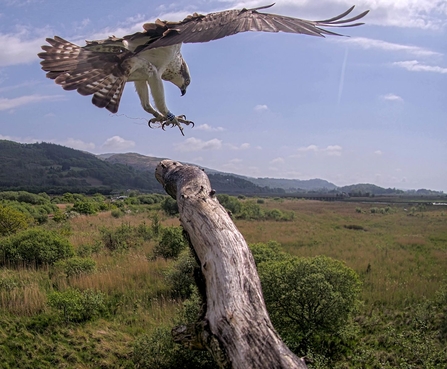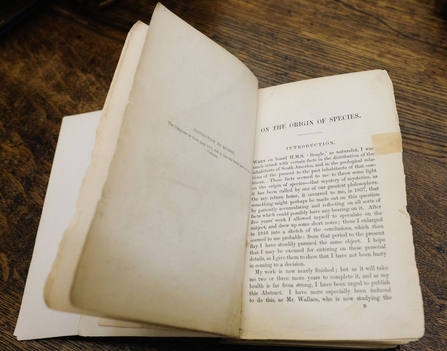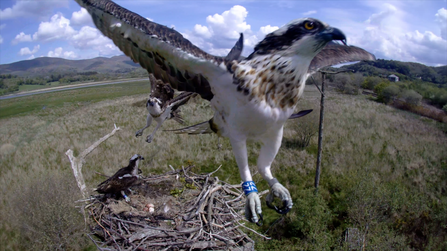Do ospreys recognise their own children?
Here's a remarkable shot taken yesterday afternoon of an intruding osprey landing on Monty's Perch. It's Blue 551 again, one of three brothers from the Clywedog nest in 2020. He's been spotted several times at his ancestral nest too over the last few days.



